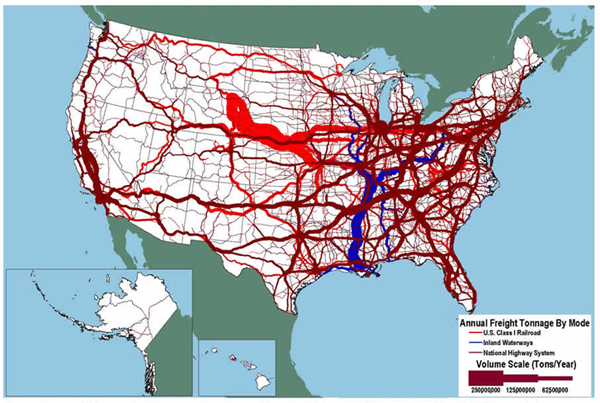
In today's article, after breaking down the amount of money that is spent on transportation, the following statement is made: "The fact that this sector is so large and simultaneously so intertwined with virtually all other sectors in the economy suggests it is vital to assess the performance of the transportation system and to consider how it could be improved".
The article also brings up a great point about "analyzing whether the United States has the optimal mix of public and private provision of transportation". But I wonder, how really do we determine what this optimal mix would be?
The document referenced in the link below outlines the theory of efficient provision of transportation, describes how public–private provision in the United States has evolved historically, and summarizes the salient features of the current system.
The following paragraph is also intriguing, arguing that more money thrown at our transportation system should be a solution without first considering how efficiently the current system is financially structured:
The hundreds of billions of dollars in welfare costs motivate either
improving public provision or expanding the role of the private sector. I
point out that political forces and limitations of transportation
agencies strongly contribute to inefficient policies and, in my view,
constrain efficient improvements in public provision. Thus, for example,
policymakers have called for a significant increase in spending on the
nation’s transportation infrastructure, but they have not considered how
inefficient pricing policies have prevented travelers and shippers from
making efficient use of existing infrastructure and how mispricing has
distorted signals for investments in new capacity.
The last part of the introduction to the document attached briefly refers to the another point that is normally argued as part of the transportation discussion: privatization and deregulation. Rely on market competition to allocate transportation resources efficiently may seem like the best solution to some, but Clifford Winston argues that much of the support for this argument stems from theoretical arguments and empirical evidence based on international
experiences and simulations of the effects of privatizing certain parts
of the U.S. system. Instead of purely advocating for privatization and deregulation, Winston calls for "modest, localized experiments that would give economists and
other analysts the opportunity to develop crucial empirical evidence
based on actual U.S. experiences to help guide policymakers’ decisions
on what parts of the transportation system, if any, should be privatized
and deregulated to improve its performance."
On the Performance of the U.S. Transportation System: Caution Ahead
http://www.brookings.edu/~/media/research/files/articles/2013/09/performance%20transportation%20system%20caution%20ahead/performance%20transportation%20system%20caution%20ahead%20winston.pdf
On the Performance of the U.S. Transportation System: Caution Ahead
http://www.brookings.edu/~/media/research/files/articles/2013/09/performance%20transportation%20system%20caution%20ahead/performance%20transportation%20system%20caution%20ahead%20winston.pdf
No comments:
Post a Comment